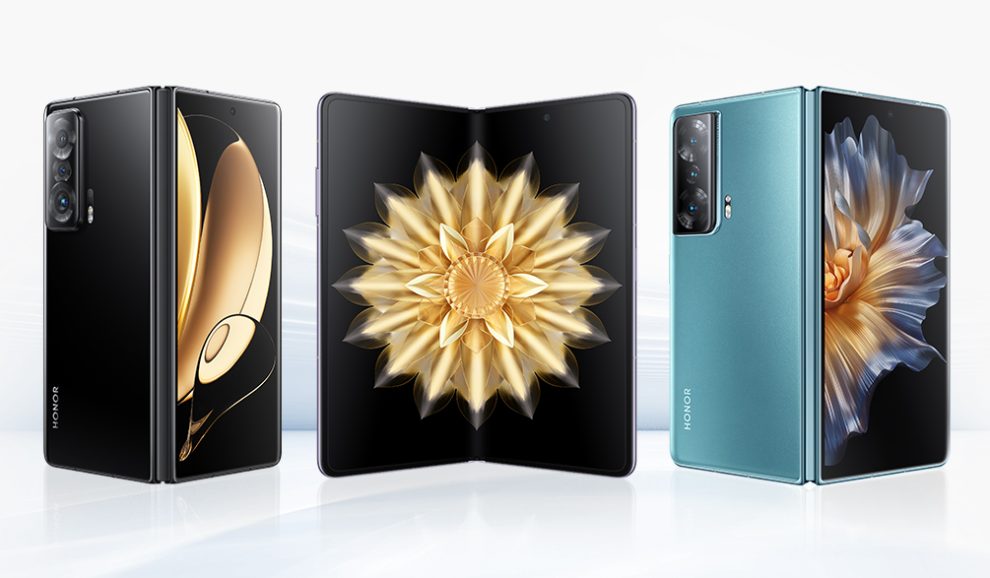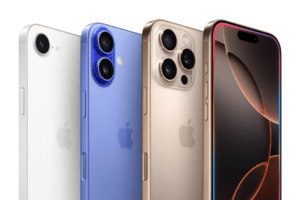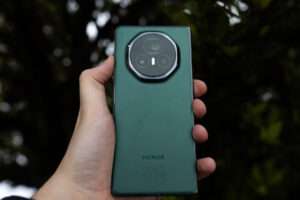Honor unveils a groundbreaking patent for an all-side folding phone mechanism. Discover how this innovation could reshape the foldable smartphone landscape.
As the crisp autumn air settles over Shenzhen’s bustling tech district, there’s a palpable buzz of excitement at Honor’s sprawling research and development campus. Today, October 1, 2024, marks a significant milestone in the world of foldable smartphones as Honor reveals its latest patent for an all-side folding mechanism. This groundbreaking concept could potentially revolutionize the way we interact with our mobile devices.
The Dawn of Multi-Directional Foldables
Standing in Honor’s state-of-the-art innovation lab, I’m surrounded by prototypes and diagrams that hint at the future of smartphone design. Dr. Li Wei, Honor’s Chief Innovation Officer, eagerly demonstrates a rough mock-up of the proposed device.
What you’re seeing here is not just another foldable phone,” Dr. Li explains, his eyes gleaming with excitement. “It’s a whole new paradigm in mobile device interaction. Imagine a phone that can fold and unfold from multiple sides, adapting to your needs in ways we’ve never seen before.”
The patent, filed under application number CN118658377A, outlines a device that can be folded or unfolded from multiple sides while maintaining durability. It’s a concept that pushes the boundaries of what we’ve come to expect from foldable technology.

The Mechanics Behind the Magic
As we delve deeper into the technical aspects of the patent, it becomes clear that this is no small feat of engineering. The design incorporates two to three rotating shafts attached to the back of the foldable screen, positioned opposite each other in pairs. These shafts allow the device to fold or unfold in multiple directions.
Sarah Chen, a materials engineer working on the project, explains the intricate details: “The key to making this work is the intermediate connecting element. It sits near the ends of each rotating shaft and allows the device to bend, fold, or unfold around two shafts in the same straight line. This is what gives us the all-side folding capability.”
The patent summary boldly states, “The usage of the foldable electronic device is more flexible and richer, which can enhance the competitiveness of the foldable electronic device.” It’s a claim that, if realized, could significantly shake up the smartphone market.
While the patent is undoubtedly exciting, it’s important to note that not all patented concepts make it to market. Tom Rodriguez, a tech industry analyst I spoke with outside Honor’s campus, offers a cautionary perspective.
“Patents like these are often a glimpse into a company’s R&D efforts,” Rodriguez explains. However, the journey from patent to product is long and fraught with challenges. We’ve seen many innovative concepts struggle with real-world implementation.”
Despite these challenges, Honor seems committed to pushing the boundaries of foldable technology. Rumors are already swirling about the company’s plans to release a tri-fold phone, potentially as soon as the first quarter of next year.
Honor’s patent comes at a time of intense competition in the foldable smartphone market. Just last month, Huawei introduced the world’s first triple foldable phone, the Mate XT. This launch has spurred other tech giants like Xiaomi and Samsung to accelerate their own tri-folding phone projects.
Dr. Emily Zhao, a consumer technology researcher at Shenzhen University, provides context on the market dynamics: “The foldable phone market is entering a new phase of innovation. We’re moving beyond simple book-style folds to more complex, multi-fold designs. Honor’s all-side folding concept, if realized, could leapfrog the competition.”
As exciting as the technology is, the real test will be how it enhances the user experience. Mark Johnson, a UX designer I met at a nearby tech café, shares his thoughts on the potential impact.
“The challenge with any new form factor is making it intuitive and useful,” Johnson muses. An all-side folding phone could offer unprecedented flexibility, but it needs to solve real user problems, not just be a gimmick.
Indeed, the potential use cases are intriguing. From a tablet-sized screen that folds down to a compact phone, to a device that can transform into different shapes for various tasks, the possibilities seem endless.
As the sun sets over Shenzhen’s skyline, casting a golden glow on Honor’s sleek campus, it’s clear that we’re standing at the cusp of a new era in smartphone design. While the all-side folding phone is still just a patent, it represents a bold vision for the future of mobile devices.
Dr. Li Wei leaves us with a tantalizing hint of what’s to come: “We’re not just thinking about the next phone or the next fold. We’re reimagining the very concept of what a smartphone can be. The all-side folding mechanism is just the beginning.”
As we await more details about this unique foldable phone concept, one thing is certain: the race to create the ultimate flexible device is heating up, and Honor is positioning itself at the forefront of this technological revolution.
















Add Comment